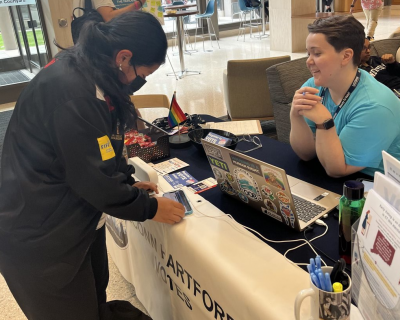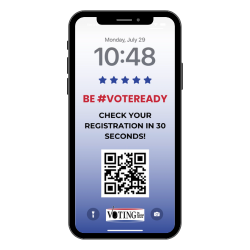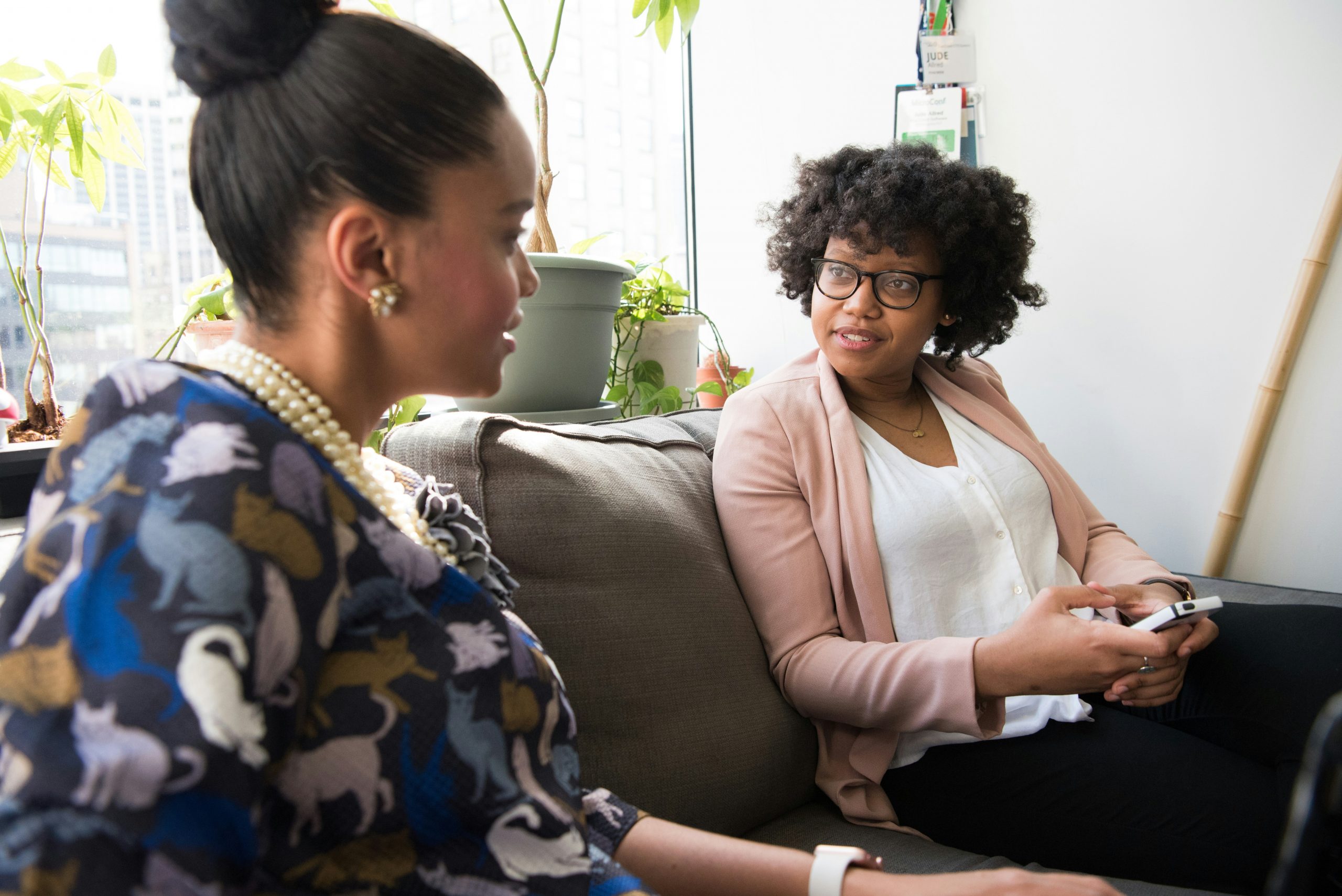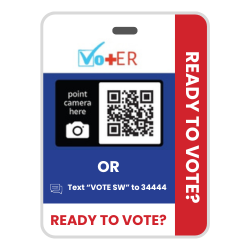Helping Others to Vote
“Voting is not only our right—it is our power.”
— Loung Ung, Human Rights Activist
Social workers are perfectly positioned to support a more inclusive, responsive democracy with its access to individuals and communities, especially those who have been historically excluded from power and vote at significantly lower rates. Voting is good for people, good for communities, and good for organizations!
Voting as a Social Work Intervention
As social workers, supporting the political power and participation of clients and communities directly aligns with our profession’s mission, Code of Ethics, and our impact. In this video, we share how and why social workers, agencies, and nonprofits can and should support clients, staff, and communities to vote.
This video is part of a series funded by the Scholars Strategy Network's Election Protection & Enhancement Program.

What You Need to Know to Engage Voters
Voting is different in every state, and you don’t have to be an expert! We need to know that voting is a basic right of citizenship but many individuals face barriers to voting.
Encouraging people to register to vote
In every state except North Dakota, citizens must be registered to vote to participate in an election. Voter registration must be updated when someone moves, changes their name, or wants to change their party.  Election officials can also remove inactive voters.
Election officials can also remove inactive voters.
Using a website or QR code link to register voters
Nonpartisan platforms like TurboVote or Vote.org allow individuals to register themselves using a phone, tablet, or computer and work in all 50 states. They send voter registration forms to home or email addresses for individuals who live in states without online voter registration or who must register manually.
They also allow people to check their registration, request an absentee ballot, and sign up for reminders to vote before every election, including local elections, primaries, and special elections.
Encourage everyone to check their voter registration status using their cellphone. It takes less than 30 seconds and ensures they won't have an issue on election day. Try it yourself right now!
Voter Registration Forms
Paper forms can be less intimidating and allow you to offer assistance more easily. However, if you collect them, it's your responsibility to ensure they are mailed or delivered to election officials.
Be aware that Florida and some other states have put new restrictions on groups registering others to vote (like collecting paper forms). If you live in Florida or a state with restrictions, seek guidance from election officials and/or civic groups like the League of Women Voters.
See our Voter Registration Drive page for more resources.
Find the rules in your state
Learn more about Individuals with special circumstances and their right to vote
Many voters have special circumstances that affect their eligibility or access to voting. Knowing where to find information ensures that social workers and others do not inadvertently suppress someone’s right to vote.
Our Voting with Special Circumstances page has information and resources for the following groups of voters:
- Individuals with a felony conviction
- Individuals experiencing homelessness or staying in temporary housing
- Voters with disabilities
- Survivors of domestic violence, human trafficking, sexual assault and other crimes
- Individuals who do not speak English
- Nursing home or long-term care facility residents
- Uniform Service members, their families, and Americans residing outside the United States
Learn more about voting rights
Voting rights and community power
People in power have always understood that voting matters. Decisions over who and who does not get to vote have been written into law since our country’s founding when only White, land-owning men could vote.
While there has been an expansion of rights over time, the fight for voting rights and access continues today. Over the last 20 years, states have put barriers in front of the ballot box — imposing strict voter ID laws, cutting voting times, purging voting rolls, limiting polling locations, and restricting registration. These efforts received a boost when the Supreme Court weakened the Voting Rights Act significantly in 2013, in its Shelby County vs Holder ruling.
Efforts to make voting harder hurts all Americans, but it has a disproportionate effect on communities of color and those living in poverty. These barriers also success by feeding a narrative and the myth that voting doesn’t matter.
The reality is that democracy at every level of government reflects the priorities of those who participate in elections. When turnout is low, it gives those who do vote—often folks who are older, Whiter, and wealthier, outsized power and influence over decisions made in their communities.
What you can do
Supporting the political power of the communities we serve is an important tool for ensuring that democracy responds to their priorities.
The more you know about voting experience in your community or the community where you work, the more helpful you can be in supporting their power and voice. For example,
-
- Get familiar with the voter registration form and process.
- Go to local and state websites. How easy is it to find information about elected officials or candidates? Or your polling place?
- How about local or state elections? What does voter turnout tell you about the power in your community?
- Are local and state elections promoted? In other words, are there lawn signs, candidate events, and/or media coverage
- Learn more about voters' rights at the polls on our Get Ready to Vote page or go to the Election Protection Coalition website at 866-ourvote.org
Find more ideas on our Resources for Schools and Organizations page.
Connect clients to elected officials and candidates
Building relationships with elected officials can bring increased visibility, attention, and access to your organization, your clients, and their struggles. Being a voter builds their political power to advocate for themselves and their communities.
It's relatively easy to look up our elected leaders at the federal or state level by going to usa.gov/elected-officials. Finding who represents us at the local and county level often requires extra steps, but it's worth it. Local and state government has an enormous impact on our daily lives and the potential to be more accessible and more accountable to its residents.
Helping clients be #voteready by making a plan to vote
People are more likely to cast a ballot when someone they trust asks them to vote. Making a plan ahead of election day also supports them to be informed and ready.
The voter checklist at the nonpartisan vote411.org includes:
- Registering to vote. Checking voter registration is up to date takes less than 30 seconds, and registering takes less than two minutes, according to the League of Women Voters.
- Get to know your ballot and review it beforehand.
- Make a plan to vote by deciding how to vote (Early, in person, Mail), where to vote, and what ID you may need
See our Get Ready to Vote page for more information about all these topics.
Mobilizing others to vote
To help you identify easy ways that you and/or your organization can engage clients and staff to vote, download our Voter Engagement Guide for Organizations and Voter Registration Toolkit.
Here are a few quick ideas:
- Ask clients if they are registered to vote on your intake form or during their appointment.
- Post flyers with a QR code that allow clients to check their voter registration using their cell phones in less than 30 seconds and sign up for reminders to vote before every election.
- Host voter registration drives at your agency or during events.
- Before an election, share nonpartisan candidate guides and events.
- Promote elections and remind clients that voting is a WE activity. When they vote, they build the political power of their community.
Don’t assume that your clients or staff are not interested in voting or have other more important priorities. Voting is an act of power. Apathy often disguises many of the barriers to voting
Know the rules before you begin
Giving people the information they need to register to vote is legal in all 50 states.
Florida and some other states have put new restrictions on groups registering voters. If you live in Florida or a state with restrictions, seek guidance from election officials and/or civic groups like the League of Women Voters.
Nonpartisan platforms like Turbovote allow individuals to register themselves using a phone, tablet, or computer. They send voter registration forms to home or email addresses for individuals who live in states without online voter registration or who must register manually. They also allow people to check their registration, request an absentee ballot, and sign up for reminders to vote before every election.
There are advantages to both paper forms and online platforms. Paper forms can be less intimidating and collecting them can ensure they are delivered to election officials. Voters register themselves using online platforms, making it a safe option. Think about what would work best for your clients or community.
Resources to Get Started

Running a voter registration drive?
Get our toolkit

Get our lock screen for your smartphone
Download Here

Engage voters at your agency or organization
Get our Guide

Get a registration badge from Vot-ER
Order badge